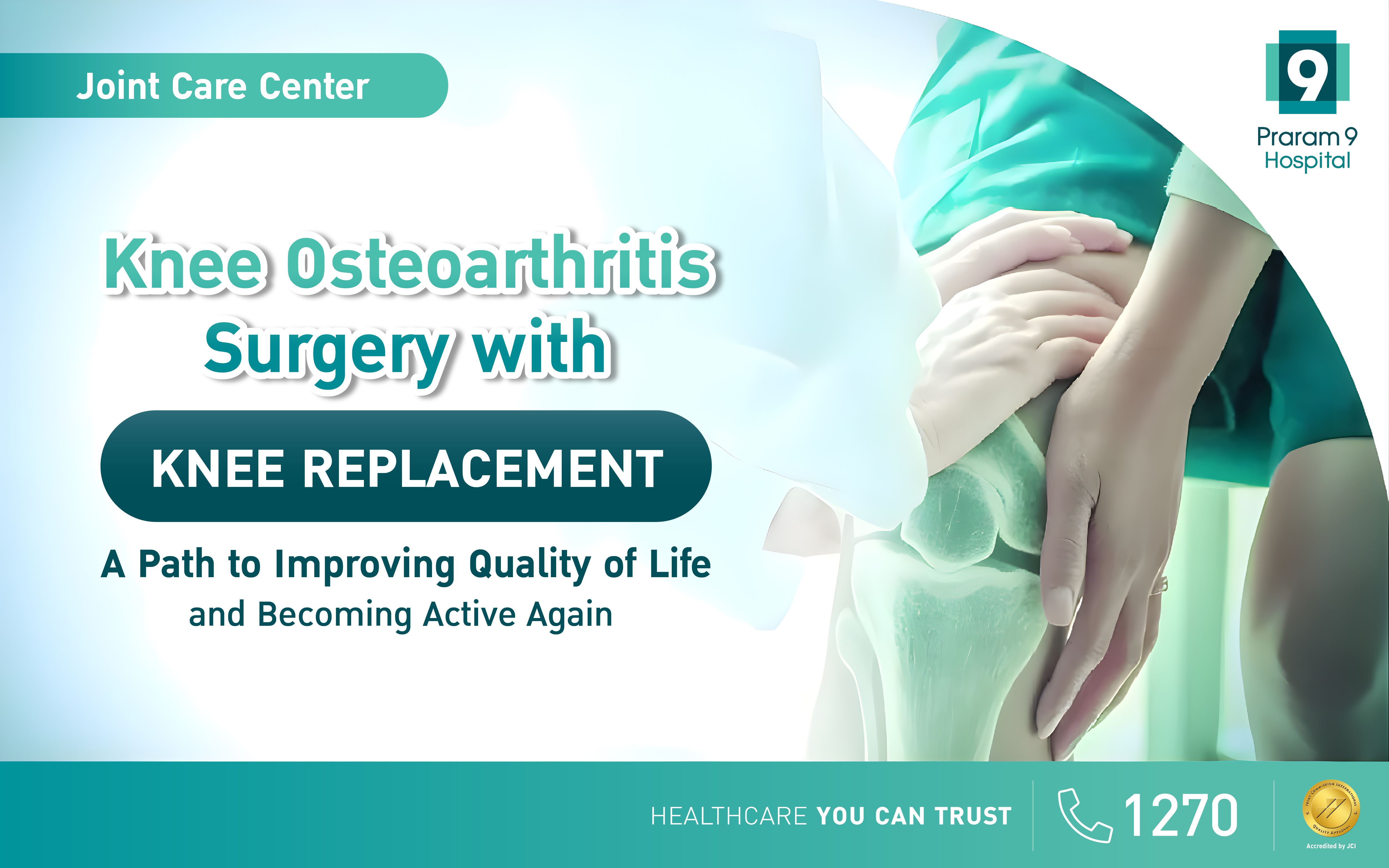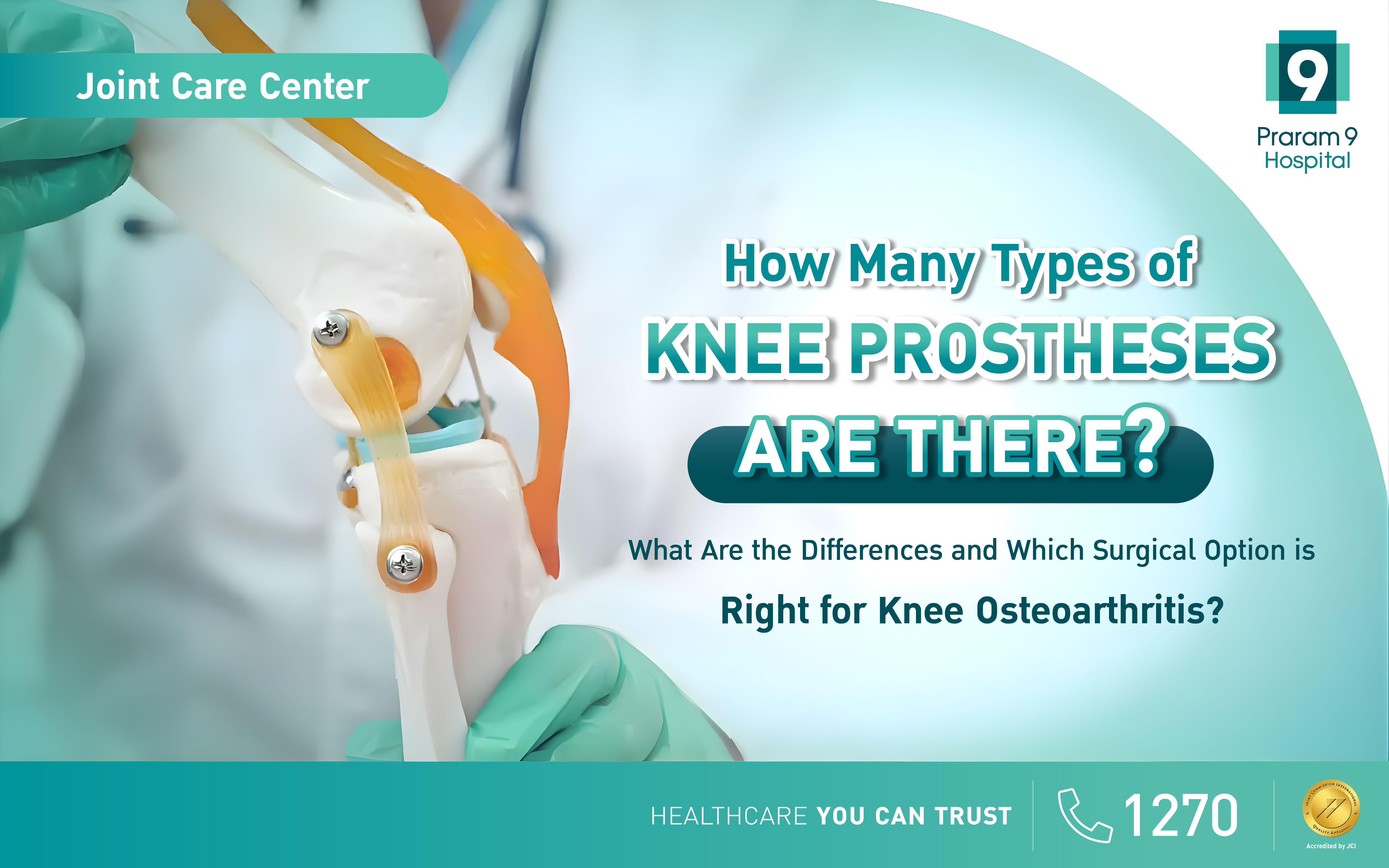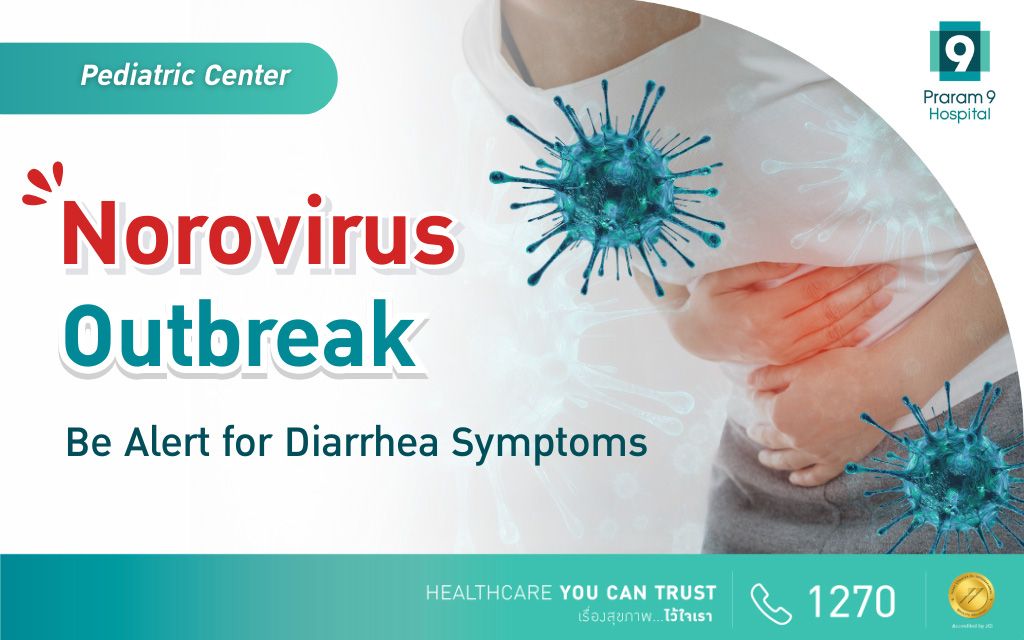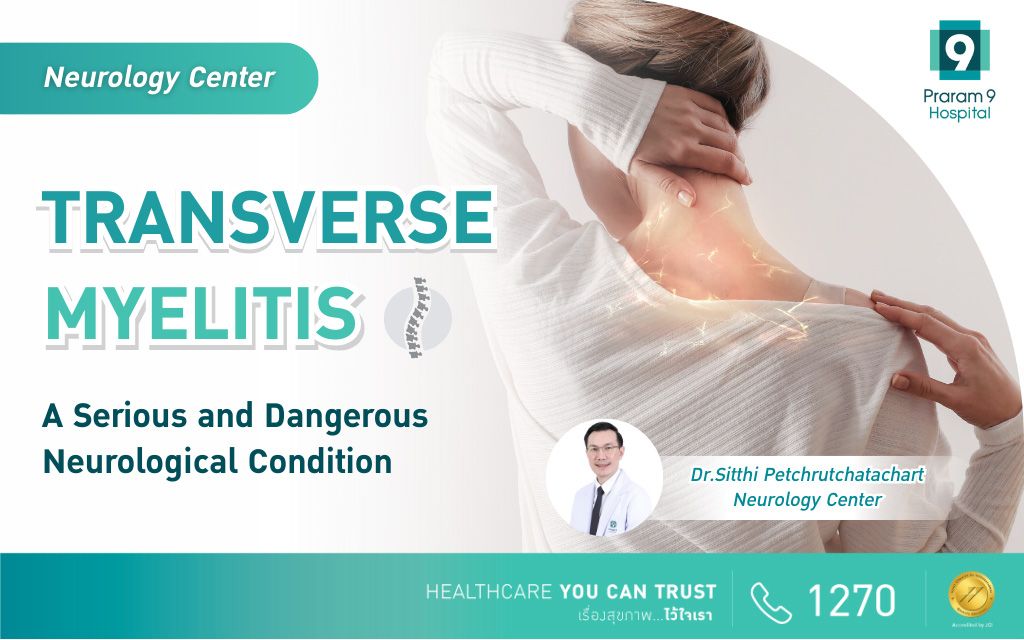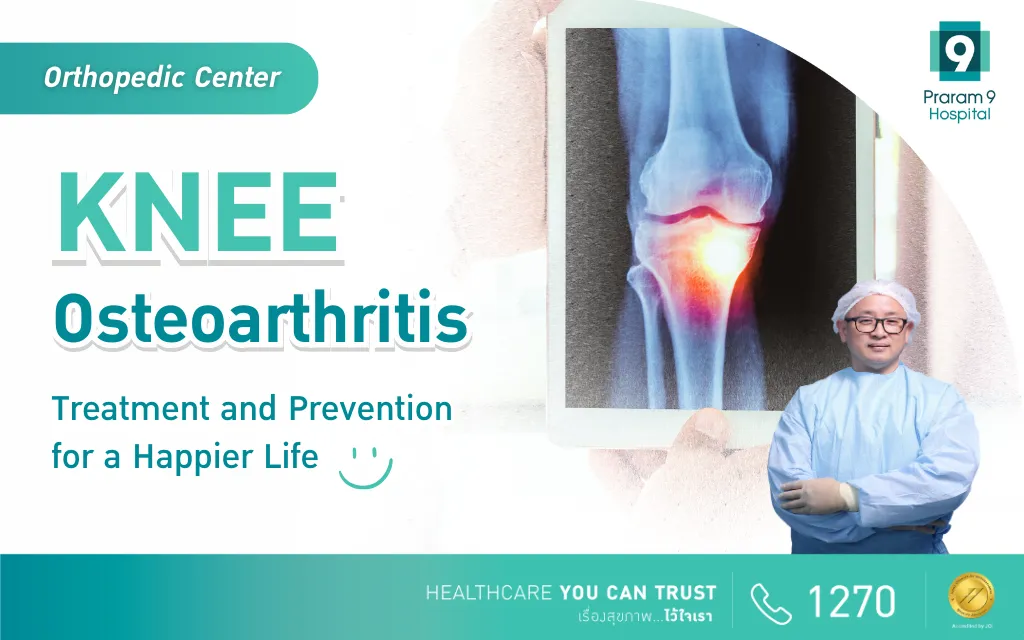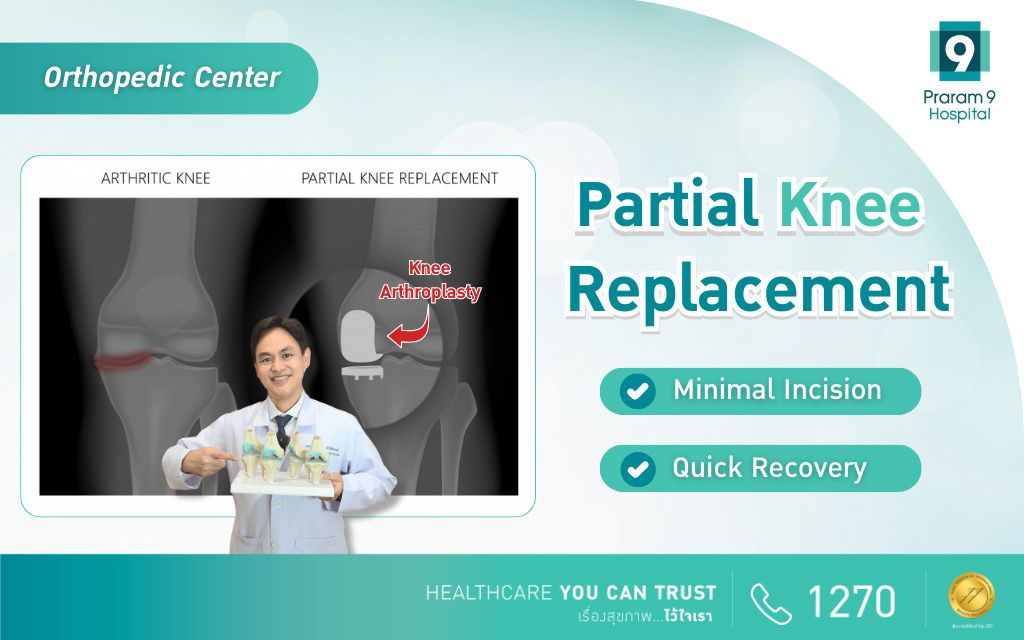Health Articles
Knowledge
Lumbar Disc Herniation : Risks of Untreated Nerve Compression
RATTALERK ARUNAKUL,M.D.
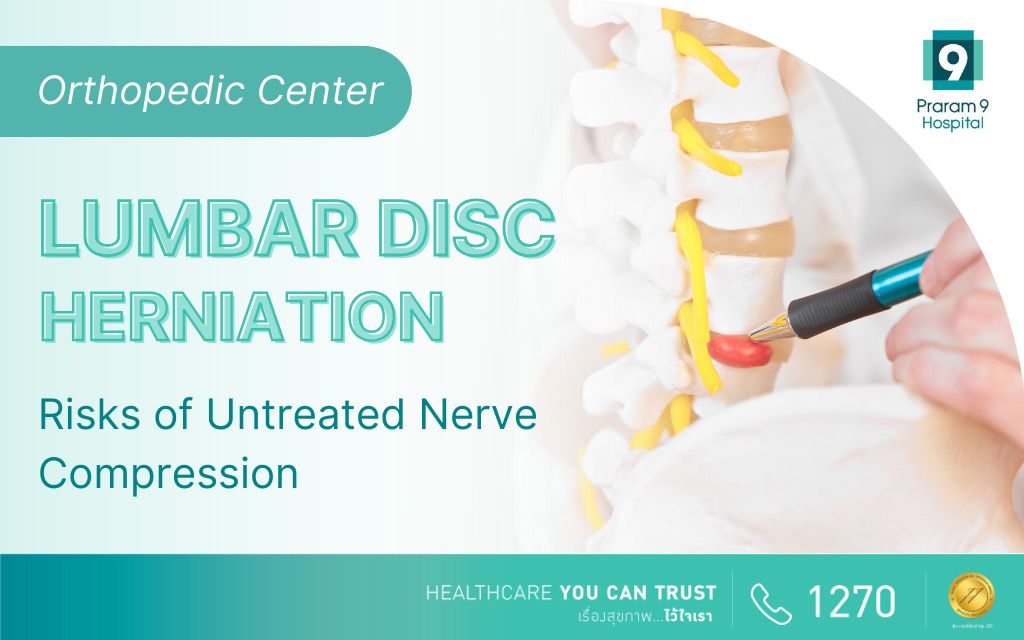
Individuals with lumbar disc herniation compressing the nerves often experience symptoms that significantly impact their daily lives. These symptoms typically include back pain or hip pain that radiates down the leg. Initially, patients may tolerate these symptoms, but over time, the condition can worsen. If left untreated, it can lead to severe abnormalities, potentially resulting in the inability to walk. Therefore, if you experience symptoms of lumbar disc herniation compressing the nerves, it is crucial to consult a doctor for appropriate treatment.
Table of contents
- What is Lumbar Disc Herniation Compressing the Nerves?
- Causes of Lumbar Disc Herniation Compressing the Nerves
- Symptoms of Lumbar Disc Herniation Compressing the Nerves
- Treatment for Lumbar Disc Herniation Compressing the Nerves
- Pre-Surgical Evaluation
- Self-Care Tips to Prevent Lumbar Disc Herniation
- Conclusion
What is Lumbar Disc Herniation Compressing the Nerves?
Lumbar disc herniation compressing the nerves, commonly known as a “herniated disc,” occurs when a spinal disc ruptures and protrudes, pressing on the nerves within the spinal canal. Normally, the intervertebral discs act as shock absorbers for the spine, preventing damage to the vertebrae. When a lumbar disc ruptures and herniates, it can compress the lumbar nerves, causing back pain radiating to the hips and legs.
Causes of Lumbar Disc Herniation Compressing the Nerves
Lumbar disc herniation compressing the nerves can be caused by several factors, including:
- Improper Posture: Incorrect sitting posture or improper lifting techniques can contribute to disc herniation .
- Severe Coughing or Sneezing: Intense coughing or sneezing can cause disc herniation.
- Degenerative Conditions: Age-related wear and tear can lead to disc degeneration and herniation.
- Accidents: Traumatic events that abruptly increase pressure in the discs or abdominal cavity, causing the disc to herniate and compress nearby nerves.
Symptoms of Lumbar Disc Herniation Compressing the Nerves
When spinal nerves are compressed, they become inflamed, leading to the following symptoms:
- Pain: Back or hip pain radiating down one leg.
- Numbness or Weakness: Numbness, weakness, or tingling in the leg and possibly the foot.
- Severe Cases: Difficulty in bowel or bladder control, such as urinary retention or constipation.
- Progressive Symptoms: Increasing pain, numbness, and weakness, risking permanent nerve damage and disability.
Treatment for Lumbar Disc Herniation Compressing the Nerves
Initial treatment typically involves conservative methods such as rest, avoiding strenuous activities, medication, and physical therapy to alleviate pain. However, if symptoms persist or worsen, or if there are medical indications such as increased numbness or weakness in the legs or abnormal bowel or bladder control, surgical intervention may be necessary.
Common surgical treatment involves removing the herniated part of the disc pressing on the nerve (discectomy). Modern endoscopic surgical techniques allow for clearer visibility of the nerves and minimize damage to surrounding tissues, resulting in less post-operative pain, smaller scars, faster recovery, and a quicker return to normal activities.
Pre-Surgical Evaluation
Before surgery, a detailed evaluation by a specialist is essential to determine the appropriate treatment method, ensuring the best possible outcome for each patient.
For more information, contact the Spine Center at Praram 9 Hospital.
Self-Care Tips to Prevent Lumbar Disc Herniation
Although some factors like aging are unavoidable, other factors can be managed to prevent lumbar disc herniation. These include:
- Proper Posture: Maintain correct posture, especially when sitting and lifting.
- Regular Movement: Avoid sitting for prolonged periods and change positions regularly.
- Correct Lifting Techniques: Bend your knees, not your back, when lifting heavy objects.
- Strengthening Exercises: Regularly exercise to strengthen your back and abdominal muscles, reducing the risk of disc injuries and prolonging the health of your intervertebral discs.
Conclusion
Lumbar disc herniation, which compresses the nerves, can cause significant back pain and may lead to numbness or weakness in the legs or feet. If untreated, it can progressively worsen, potentially causing severe complications and disability. If you experience back pain radiating down your legs or numbness, seek prompt medical attention to avoid serious consequences and ensure effective treatment.

